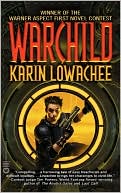250 Weeks of Goblin Quest
 As I was adding my Bookscan numbers to my big old Excel Spreadsheet of Sales (yes, I’m a data geek), I realized last week marked exactly 250 weeks since Goblin Quest [Amazon | B&N | Mysterious Galaxy] first started showing up in bookstores.
As I was adding my Bookscan numbers to my big old Excel Spreadsheet of Sales (yes, I’m a data geek), I realized last week marked exactly 250 weeks since Goblin Quest [Amazon | B&N | Mysterious Galaxy] first started showing up in bookstores.
That was an odd realization. It’s been not quite five years since the biggest shift in my career… In some respects it feels like a long time. There are circles where I feel like one of the old pros, watching the new kids with their fancy e-books and their new-fangled urban steampunk pararomances and their social media. In other ways, I still feel like a brand new author trying to figure out how to make a career of this.
Some random factoids about Goblin Quest…
- I started writing the book on November 1, 2000, as part of a Novel Dare with some friends.
- I finished the first draft on December 7, 2000. (I was unemployed at the time, so I could spend a lot of time writing.)
- After a three week break, I started revising on January 1, 2001.
- I wrapped up revision after about two weeks, and submitted my first four query letters on January 16, 2001.
- My first rejection letter showed up on January 30, 2001.
- I submitted to a total of 39 agents and publishers over the next few years, and was rejected by almost all of them.
- The first acceptance arrived on January 7, 2004 from Five Star Books … three years after I finished the book. (We sold the book to DAW in early 2006.)
- Goblin Quest has been published in Russian, German, French, Polish, and Czech. (We almost had a Hebrew edition as well, but that fell through.)
- The book has earned out its U.S. advance twice over, and is currently in its sixth printing with DAW. Its two sequels also earned out their advances and gone back for multiple printings.
Not bad for a nearsighted goblin runt and his pet fire-spider, eh? So much has changed since then … it makes me wonder where I’ll be in another five years.







 My first novel, Warchild
My first novel, Warchild  It’s been a rather intense couple of weeks here at the blog, so today I figured I’d try something different.
It’s been a rather intense couple of weeks here at the blog, so today I figured I’d try something different.